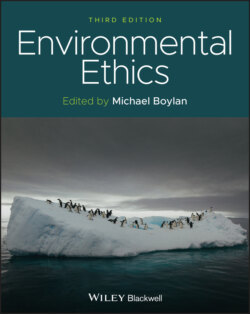Читать книгу Environmental Ethics - Группа авторов - Страница 16
A Prudential Model of Decision-Making
ОглавлениеIn order to begin answering this question we must start by examining the way most of us make decisions. Everyone initiates the decision-making process with an established worldview. A worldview is a current personal consciousness that consists in one’s understanding of the facts and about the values in the world. It is the most primitive term to describe our factual and normative conceptions. This worldview may be one that we have chosen or it may be one that we passively accepted as we grew up in a particular culture. Sometimes, this worldview is wildly inconsistent. Sometimes, this worldview has gaping holes so that no answer can be generated. Sometimes, it is geared only to perceived self-interest. And sometimes, it is fanciful and can never be put into practice. Failures in one’s personal worldview model will lead to failures in decision-making.
One common worldview model in the Western world is that of celebrity fantasy. Under this worldview, being a celebrity is everything. Andy Warhol famously claimed that what Americans sought after most was “fifteen minutes of fame.”1 Under this worldview model we should strive to become a celebrity if only for a fleeting moment. What does it mean to be a celebrity? It is someone who is seen and recognized by a large number of people. Notice that this definition does not stipulate that once recognized the object is given positive assent. That would be to take an additional step. To be seen and recognized is enough. One can be a sinner or a saint—all the same. To be recognized is to be recognized. If this is the end, then it is probably easier to take the sinner route. In this way, the passion for celebrity is at heart contrary to ethics.
Another popular worldview model is one of practical competence. Under this model the practitioner strives to consider what is in his or her best interest and applies a practical cost–benefit analysis to various situations in order to ascertain whether action x or action y will maximize the greatest amount of pleasure for the agent (often described in terms of money). Thus, if you are Bernie Madoff (a well-known financial swindler) you might think about the risks and rewards of creating an illegal Ponzi scheme as opposed to creating a legitimate investment house that operates as other investment houses do. The risks of setting off on your own direction are that you might get caught and go to prison. The rewards are that you might make much more money than you would have done under the conventional investment house model. Since you think you are smarter than everyone else and will not get caught, the prudential model would say: “Go for it!” Madoff did get caught, but who knows how many others do not? We cannot know because they have not been caught. But even if you are not caught, is that the best worldview approach? The prudential model says yes.
